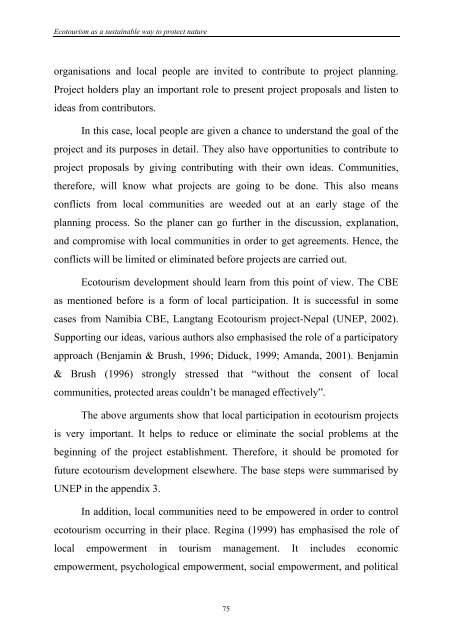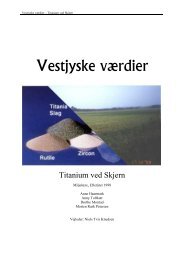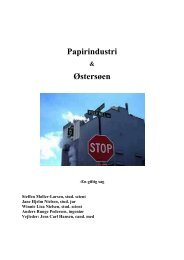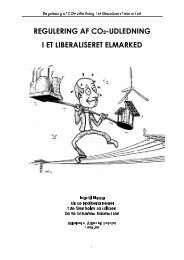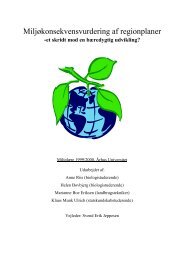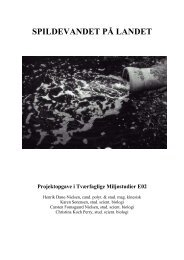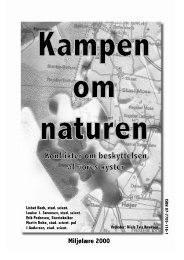University of Aarhus ECOTOURISM AS A WAY TO PROTECT ...
University of Aarhus ECOTOURISM AS A WAY TO PROTECT ...
University of Aarhus ECOTOURISM AS A WAY TO PROTECT ...
Create successful ePaper yourself
Turn your PDF publications into a flip-book with our unique Google optimized e-Paper software.
Ecotourism as a sustainable way to protect nature<br />
organisations and local people are invited to contribute to project planning.<br />
Project holders play an important role to present project proposals and listen to<br />
ideas from contributors.<br />
In this case, local people are given a chance to understand the goal <strong>of</strong> the<br />
project and its purposes in detail. They also have opportunities to contribute to<br />
project proposals by giving contributing with their own ideas. Communities,<br />
therefore, will know what projects are going to be done. This also means<br />
conflicts from local communities are weeded out at an early stage <strong>of</strong> the<br />
planning process. So the planer can go further in the discussion, explanation,<br />
and compromise with local communities in order to get agreements. Hence, the<br />
conflicts will be limited or eliminated before projects are carried out.<br />
Ecotourism development should learn from this point <strong>of</strong> view. The CBE<br />
as mentioned before is a form <strong>of</strong> local participation. It is successful in some<br />
cases from Namibia CBE, Langtang Ecotourism project-Nepal (UNEP, 2002).<br />
Supporting our ideas, various authors also emphasised the role <strong>of</strong> a participatory<br />
approach (Benjamin & Brush, 1996; Diduck, 1999; Amanda, 2001). Benjamin<br />
& Brush (1996) strongly stressed that “without the consent <strong>of</strong> local<br />
communities, protected areas couldn’t be managed effectively”.<br />
The above arguments show that local participation in ecotourism projects<br />
is very important. It helps to reduce or eliminate the social problems at the<br />
beginning <strong>of</strong> the project establishment. Therefore, it should be promoted for<br />
future ecotourism development elsewhere. The base steps were summarised by<br />
UNEP in the appendix 3.<br />
In addition, local communities need to be empowered in order to control<br />
ecotourism occurring in their place. Regina (1999) has emphasised the role <strong>of</strong><br />
local empowerment in tourism management. It includes economic<br />
empowerment, psychological empowerment, social empowerment, and political<br />
75


